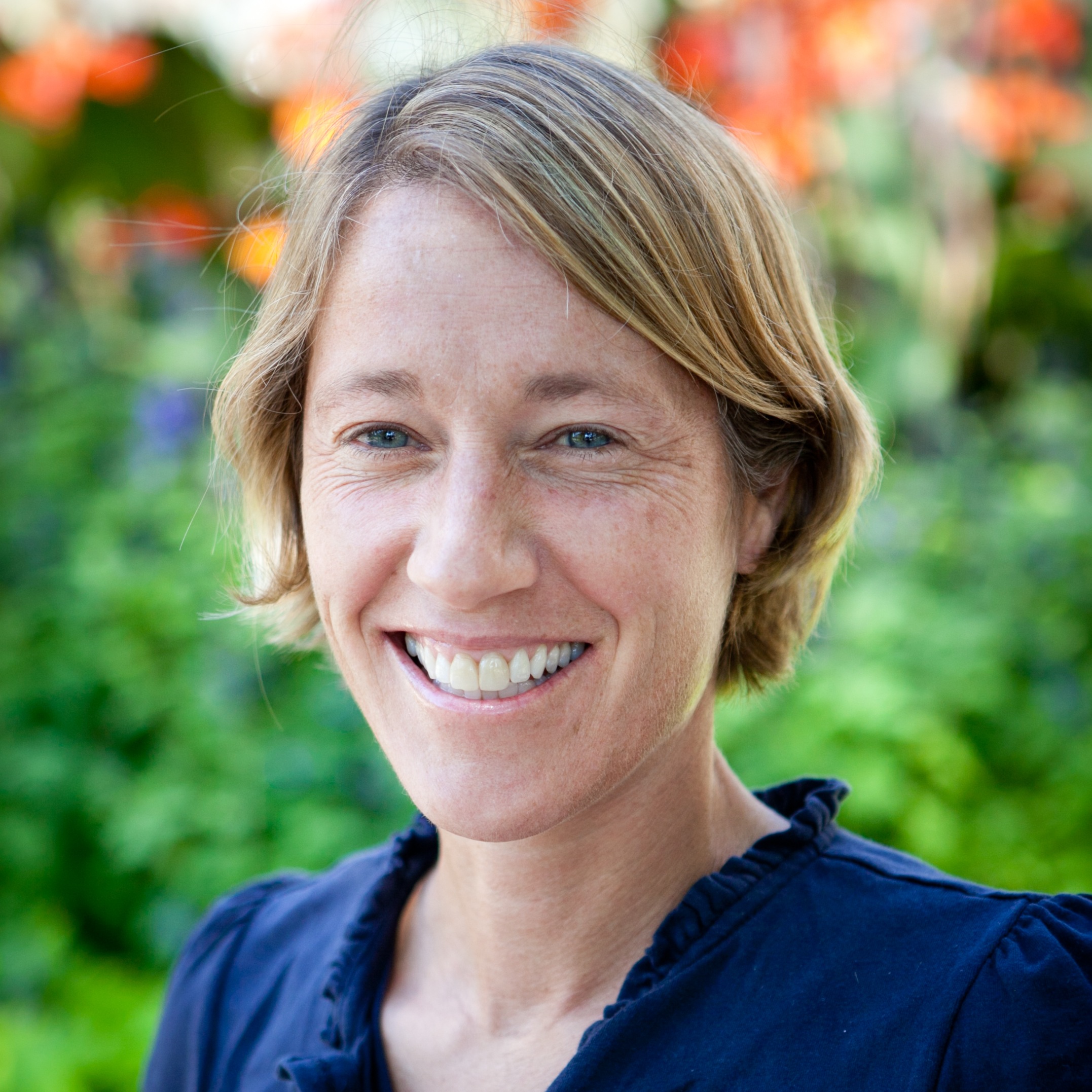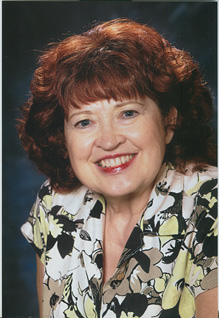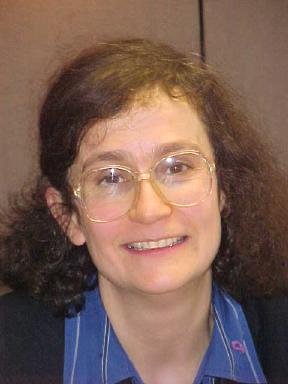Jen Kennedy-Croft
 I have been to the UCA martyrs homeland and seen the rose garden that was planted on the site of their deaths. As a Jesuit Volunteer in Belize, I had the opportunity to visit the UCA over one of my breaks, and see where they worked and lived. They have saved the blood soaked clothes the Jesuits and their housekeeper and daughter were wearing, as a witness to the violence that occurred on November 16, 1989. This really touched me, witnessing the violence they were subjected to in the last moments of their lives. And the only sense I could make of it was these men and women died because they were willing to live for and with the poor. They were prophetic voices when it was needed most. They spoke out about all the atrocities that were happening in El Salvador at the time, and they were killed because of it.
I have been to the UCA martyrs homeland and seen the rose garden that was planted on the site of their deaths. As a Jesuit Volunteer in Belize, I had the opportunity to visit the UCA over one of my breaks, and see where they worked and lived. They have saved the blood soaked clothes the Jesuits and their housekeeper and daughter were wearing, as a witness to the violence that occurred on November 16, 1989. This really touched me, witnessing the violence they were subjected to in the last moments of their lives. And the only sense I could make of it was these men and women died because they were willing to live for and with the poor. They were prophetic voices when it was needed most. They spoke out about all the atrocities that were happening in El Salvador at the time, and they were killed because of it.
The roses were planted after that brutal night to be a sign of hope and life. As I look back at that time I spent in the UCA Jesuit gardens, I think of what it is calling out of me today, not just to remember their lives and their witness to the world, but to bring about the Kingdom of God in my world. I believe that is what the legacy of the Jesuit asks us to do. Be a living sign of Christ’s presence in the world. Whether through simple acts of kindnesses or courageous stands against injustice, we are all called to be signs of hope and peace. This year I will share the story of the UCA martyrs with my children, it is a story of tragedy and suffering but also one of great hope and resurrection. I hope in sharing this story they too will see that in our day to day lives we have the choice to stand up to the bullies and speak out for the marginalized, that living a life of love and service is what God calls each of us to do in our own small corner of the Kingdom.
Tom Kelly
 As an academic serving in a Jesuit and Catholic University in the United States, the UCA Martyrs remind me that Jesuit education should always be about more than itself. What got the Jesuits killed were the choices of whom they served and how they served them. They chose to embody the Jesuit Mission articulated in the 1975 General Congregation 32 of the Society of Jesus which decreed: “the mission of the Society today is the service of faith, of which the promotion of justice is an absolute requirement.” The Jesuits of the UCA lived out this mission of faith and justice as a university, through research, teaching, and service.
As an academic serving in a Jesuit and Catholic University in the United States, the UCA Martyrs remind me that Jesuit education should always be about more than itself. What got the Jesuits killed were the choices of whom they served and how they served them. They chose to embody the Jesuit Mission articulated in the 1975 General Congregation 32 of the Society of Jesus which decreed: “the mission of the Society today is the service of faith, of which the promotion of justice is an absolute requirement.” The Jesuits of the UCA lived out this mission of faith and justice as a university, through research, teaching, and service.
Do we encourage injustice by accepting the status quo and stopping at charity and service, or do we choose to marshal our talents and resources as a university by challenging and changing unjust social structures, by living out the Jesuit mission of “a faith that does justice” in our research, teaching, service, and patient care? We teach excellent health professions. Do we educate our students about who has access to health care and why? We teach excellent business and law. Do we educate our business and law students on their obligation not only to be ethical, but also to be just in the midst of what Pope Francis calls “an economy of exclusion and inequality?” (Evangelii Gaudium, para. 53). We teach excellent humanities. Do we humanize our society by graduating students aware of and responsive to suffering in our own context?
And so it is appropriate for us to ask ourselves here and now, ultimately, whom do we serve and how do we serve them?
Barbara Dilly
 My life was touched by the tragedy of the deaths of the martyrs of El Salvador while I was a student seeking my vocation. The courage with which the Jesuits and their colleagues gave their lives to justice, even to the point of death, challenged me to make my own vocation something for which I would give my whole life, not just a part of it…..and to die if necessary. That event was an important catalyst in my thinking about my future in terms of a call to serve others instead of just a career.
My life was touched by the tragedy of the deaths of the martyrs of El Salvador while I was a student seeking my vocation. The courage with which the Jesuits and their colleagues gave their lives to justice, even to the point of death, challenged me to make my own vocation something for which I would give my whole life, not just a part of it…..and to die if necessary. That event was an important catalyst in my thinking about my future in terms of a call to serve others instead of just a career.
I am so thankful to have found the Creighton community to be a place where I can be continuously inspired to live out that calling. The public lifting up of these martyrs on this 25th anniversary by the Jesuit community has inspired me to identify with the commitment to never forget those who lived and died so faithfully. It is fitting that this event occurs so close to All Saints Day. Not surprisingly, the Jesuits remain “abrazados in la lucha,” but in the process, they open up their community to invite all of us to share in the struggle for justice!
Andy Alexander, S.J.
 I am still deeply disturbed and profoundly inspired by the assassination of my Jesuit brothers at the University of Central America, in San Salvador. This 25th anniversary brings it all back. They were brutally and symbolically killed (their brains were shot out) because they were doing what their Jesuit vocation called them to do. As priests and professors, they were promoting a faith that does justice. They were speaking out on behalf of those who had no voice. They were challenging the power and wealth of a few, on behalf of those who were tragically deprived of basic human rights. The proof that they were speaking the truth to those holding on to power by military force is that they had to be eliminated, and taken out, in a way which would be a threatening sign to others. Repression must resort to violence to sustain itself. And, I’m still disturbed that their housekeeper and her daughter, whom they were keeping in this Jesuit community overnight for their safety, were murdered with them. Most of all, I’m saddened and appalled that the U.S. Government had to support that terrible regime because of our simplistic cold war military position. Resistance to oppression contained Marxist elements, as well as faith-based resistance, and therefore, this simplistic logic maintained, the resistance had to be opposed with military force.
I am still deeply disturbed and profoundly inspired by the assassination of my Jesuit brothers at the University of Central America, in San Salvador. This 25th anniversary brings it all back. They were brutally and symbolically killed (their brains were shot out) because they were doing what their Jesuit vocation called them to do. As priests and professors, they were promoting a faith that does justice. They were speaking out on behalf of those who had no voice. They were challenging the power and wealth of a few, on behalf of those who were tragically deprived of basic human rights. The proof that they were speaking the truth to those holding on to power by military force is that they had to be eliminated, and taken out, in a way which would be a threatening sign to others. Repression must resort to violence to sustain itself. And, I’m still disturbed that their housekeeper and her daughter, whom they were keeping in this Jesuit community overnight for their safety, were murdered with them. Most of all, I’m saddened and appalled that the U.S. Government had to support that terrible regime because of our simplistic cold war military position. Resistance to oppression contained Marxist elements, as well as faith-based resistance, and therefore, this simplistic logic maintained, the resistance had to be opposed with military force.
This inspiration of these Jesuits can lead us to ask how each of us, how all of us, can better stand on the side of the poor and the marginal. Because these Jesuits (and so many others) died this way, I have to ask myself if my heart is with those who are repressed and marginalized in my neighborhood, my city, my country, in my world. I have to ask how I speak on their behalf, how I make their plight known, and how I advocate on their behalf. And, if nobody in power is upset with me, I have to ask myself if I am doing enough. May the commitment and ultimate witness of these six Jesuits always give us courage and inspire our solidarity.
Jeanne Schuler
 The killings at the Jesuit residence of the UCA sparked outrage and pushed the U.S. and Salvadoran governments to resume the peace process that would bring the civil war of the 1980s to an end. Unlike the massacred campesinos, these mutilated bodies had names that became known throughout the world. We continue to learn from their lives. Universities do not always delve into social questions and document the oppression of the poor. Scholars do not often confront corrupt political leaders over unjust policies. Clerics do not often move from works of mercy to address institutionalized violence. Mostly we fashion lives of small risks and considerable comfort. The right-wing death squads realized what we often forget--how ideas illumine the world. To grasp complex realities from the standpoint of the poor should be a goal of education. Authentic education leads to action and the joys of solidarity. The UCA, like most universities, educates the country’s elites. But a university steeped in its calling does not succor privilege and power. It is from the passion for truth that justice is served. This they taught us.
The killings at the Jesuit residence of the UCA sparked outrage and pushed the U.S. and Salvadoran governments to resume the peace process that would bring the civil war of the 1980s to an end. Unlike the massacred campesinos, these mutilated bodies had names that became known throughout the world. We continue to learn from their lives. Universities do not always delve into social questions and document the oppression of the poor. Scholars do not often confront corrupt political leaders over unjust policies. Clerics do not often move from works of mercy to address institutionalized violence. Mostly we fashion lives of small risks and considerable comfort. The right-wing death squads realized what we often forget--how ideas illumine the world. To grasp complex realities from the standpoint of the poor should be a goal of education. Authentic education leads to action and the joys of solidarity. The UCA, like most universities, educates the country’s elites. But a university steeped in its calling does not succor privilege and power. It is from the passion for truth that justice is served. This they taught us.